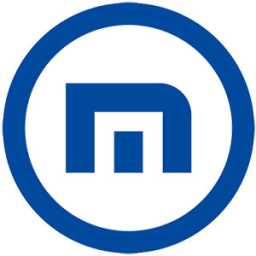 Photo by Denny Müller on Unsplash
Photo by Denny Müller on Unsplash
10 Alternatives to Google Chrome
Google Chrome has been the dominant browser in terms of market share for many years. According to StatCounter, as of February 2023, Google Chrome holds more than 65% of the global market share for desktop and mobile browsing. While Chrome offers many features and benefits, including fast performance, robust extensions and tight integration with other Google services some users may be interested in exploring alternative browsers.
In this article, we'll take a look at 10 different browsers and compare their advantages and disadvantages to Google Chrome. We'll highlight the unique features and benefits of each browser as well as any potential drawbacks or limitations. By the end of this article you'll have a better understanding of the variety of browsers available, and you'll be better equipped to make an informed decision about which browser to use for your personal browsing needs.
-
Mozilla Firefox
 Mozilla Firefox is a free and open-source web browser that is available for Windows, Mac and Linux. It is known for its privacy features customizable interface and support for add-ons and extensions.
Mozilla Firefox is a free and open-source web browser that is available for Windows, Mac and Linux. It is known for its privacy features customizable interface and support for add-ons and extensions.
Advantages of Firefox over Google Chrome
Privacy: Firefox is known for its strong focus on user privacy. It has built-in features such as Enhanced Tracking Protection that blocks third-party tracking cookies and prevents companies from collecting data about your browsing habits. In contrast, Chrome is developed by Google, a company that relies heavily on collecting user data for its business model.
Customizability: Firefox offers a wide range of customization options, such as the ability to install themes and add-ons to enhance your browsing experience. In contrast, Chrome's customization options are limited and often require the installation of third-party extensions.
Open-source: Firefox is an open-source project, which means that its code is available for anyone to inspect modify and contribute to. This provides a level of transparency and community involvement that is not available with Chrome, which is developed by a single company.
Performance: While Chrome is known for its speed, Firefox has made significant improvements in recent years and is now a fast and responsive browser. In fact some benchmarks show that Firefox can be faster than Chrome in certain situations such as when loading complex web pages or when using multiple tabs.
Accessibility: Firefox has long been committed to making the web accessible for all users, including those with disabilities. It offers a range of accessibility features such as support for screen readers and keyboard navigation, that can make browsing the web easier for those with visual or motor impairments.
Disadvantages of Firefox compared to Google Chrome
Compatibility: While Firefox is generally compatible with most websites there may be some websites or web applications that are optimized specifically for Chrome and may not work as well in Firefox.
Extension ecosystem: Although Firefox offers a wide range of add-ons and extensions, the Chrome extension ecosystem is generally larger and more diverse. Some extensions that are available for Chrome may not be available for Firefox or may not work as well.
Resource usage: Firefox can be more resource-intensive than Chrome especially when multiple tabs are open. This can lead to slower performance on older or less powerful computers.
Market share: Chrome is by far the most popular browser with a market share of around 70%. This means that some websites and web applications may be optimized specifically for Chrome, and Firefox users may encounter compatibility issues or other problems as a result.
Development speed: Chrome is developed by Google, a large and well-funded company with a large development team. Firefox on the other hand, is developed by Mozilla, a non-profit organization with a smaller budget and development team. As a result, new features and updates may be released more slowly for Firefox than for Chrome.
-
Microsoft Edge
 Microsoft Edge is a web browser developed by Microsoft that is available for Windows Mac, iOS, and Android. It is based on the Chromium open-source project and offers features such as built-in privacy and security tools, a reading mode, and integration with Microsoft services.
Microsoft Edge is a web browser developed by Microsoft that is available for Windows Mac, iOS, and Android. It is based on the Chromium open-source project and offers features such as built-in privacy and security tools, a reading mode, and integration with Microsoft services.
Advantages of Microsoft Edge over Google Chrome
Performance: Microsoft Edge is a fast and responsive browser with startup times and page load times that are often faster than Chrome. It also has a smaller memory footprint, which can help improve performance on older or less powerful computers.
Integration with Windows: Edge is integrated with the Windows operating system, which can provide a more seamless and convenient user experience. For example, Edge supports Windows Hello which allows users to log in to websites using biometric authentication (such as a fingerprint or face recognition).
Privacy: Edge includes several built-in privacy features, such as tracking prevention and InPrivate browsing mode, which can help protect users' online privacy. Additionally Edge uses Microsoft Defender SmartScreen to protect against malicious websites and downloads.
Reading and annotation tools: Edge includes built-in reading and annotation tools that can make it easier to read and annotate web pages and PDFs. This can be particularly useful for students researchers, and professionals who need to read and analyze large amounts of text.
Compatibility: Edge is based on the same Chromium engine as Chrome, which means that it is generally compatible with the same websites and web applications as Chrome. However, Edge may be more compatible with some Microsoft services and applications, such as Office 365 and Teams.
Collections feature: Edge includes a Collections feature that allows users to easily save and organize web content (such as text images, and links) into groups. This can be useful for research, planning and organizing information.
Disadvantages of Microsoft Edge compared to Google Chrome
Extension ecosystem: Although Edge supports many of the same extensions as Chrome, the Chrome extension ecosystem is generally larger and more diverse. Some extensions that are available for Chrome may not be available for Edge or may not work as well.
Customizability: Edge has a more limited range of customization options compared to Chrome. For example, Edge does not support themes or the ability to customize the New Tab page.
Market share: Chrome is by far the most popular browser with a market share of around 70%. This means that some websites and web applications may be optimized specifically for Chrome and Edge users may encounter compatibility issues or other problems as a result.
Limited platform support: While Chrome is available on a wide range of platforms including Windows, macOS, Linux, Android, and iOS Edge is only officially supported on Windows and macOS. This can be a disadvantage for users who want to use the same browser across multiple devices.
Less frequent updates: Edge is updated less frequently than Chrome, which means that new features and updates may be released more slowly for Edge than for Chrome. This can be a disadvantage for users who want to stay up-to-date with the latest browser features and security fixes.
-
Safari
 Safari is a web browser developed by Apple that is available for macOS and iOS. It is known for its fast performance energy efficiency and integration with Apple's ecosystem of devices and services.
Safari is a web browser developed by Apple that is available for macOS and iOS. It is known for its fast performance energy efficiency and integration with Apple's ecosystem of devices and services.
Advantages of Safari over Google Chrome
Integration with Apple ecosystem: Safari is the default browser on Apple devices and it is designed to work seamlessly with other Apple products and services such as iCloud and Siri. This can provide a more seamless and convenient user experience for users who use multiple Apple devices.
Energy efficiency: Safari is optimized for energy efficiency, which can help prolong battery life on Apple devices. This can be particularly useful for users who rely on their devices for extended periods of time.
Privacy: Safari includes several built-in privacy features such as Intelligent Tracking Prevention and Private Browsing mode, which can help protect users' online privacy. Additionally Safari uses the iCloud Keychain to securely store passwords and other sensitive information.
Performance: Safari is a fast and responsive browser, with startup times and page load times that are often faster than Chrome. It also has a smaller memory footprint, which can help improve performance on older or less powerful devices.
Reader mode: Safari includes a Reader mode that can strip away distracting ads and formatting from web pages, leaving only the core content. This can make it easier to read and focus on the information that is most important.
Accessibility: Safari includes several built-in accessibility features such as VoiceOver and support for the Web Content Accessibility Guidelines (WCAG). This can make it easier for users with disabilities to access and interact with web content.
Developer tools: Safari includes a powerful set of developer tools, which can be particularly useful for web developers and designers. The developer tools include features such as a debugger, a network inspector, and a JavaScript console.
Disadvantages of Safari compared to Google Chrome
Limited extension support: While Safari supports a range of extensions, the Safari extension ecosystem is generally smaller and less diverse than the Chrome extension ecosystem. Some extensions that are available for Chrome may not be available for Safari, or may not work as well.
Customizability: Safari has a more limited range of customization options compared to Chrome. For example, Safari does not support themes or the ability to customize the New Tab page.
Compatibility: Safari may be less compatible with some websites and web applications compared to Chrome. Some websites may be optimized specifically for Chrome and Safari users may encounter compatibility issues or other problems as a result.
Market share: Chrome is by far the most popular browser, with a market share of around 70%. This means that some websites and web applications may be optimized specifically for Chrome, and Safari users may encounter compatibility issues or other problems as a result.
Limited platform support: While Chrome is available on a wide range of platforms including Windows, macOS, Linux Android, and iOS Safari is only officially supported on macOS and iOS. This can be a disadvantage for users who want to use the same browser across multiple platforms.
-
Opera
 Opera is a web browser that is available for Windows, Mac, and Linux. It is known for its speed, built-in ad blocker and support for VPNs and other privacy features.
Opera is a web browser that is available for Windows, Mac, and Linux. It is known for its speed, built-in ad blocker and support for VPNs and other privacy features.
Advantages of Opera over Google Chrome
Built-in features: Opera includes several built-in features that are not available in Chrome such as a VPN an ad blocker, and a battery saver mode. This can provide users with added functionality and convenience without the need to install additional extensions or software.
Customizability: Opera offers a wide range of customization options, including the ability to customize the browser's appearance keyboard shortcuts, and mouse gestures. This can make it easier for users to tailor the browser to their preferences and workflow.
Speed: Opera is a fast and responsive browser, with page load times that are often faster than Chrome. Additionally, Opera includes a feature called Turbo mode, which can compress web pages to reduce data usage and speed up page loading on slower connections.
Compatibility: Opera is built on the same Chromium engine as Chrome, which means that it is generally highly compatible with websites and web applications. Users are unlikely to encounter compatibility issues or other problems when using Opera to access the web.
Security: Opera includes several security features, such as built-in phishing and malware protection, that can help protect users' online privacy and security.
Privacy: Opera includes several privacy features, such as a built-in ad blocker and a tracker blocker that can help protect users' online privacy.
Battery life: Opera includes a battery saver mode that can help extend battery life on laptops and other devices. This can be particularly useful for users who rely on their devices for extended periods of time.
Disadvantages of Opera compared to Google Chrome
Limited extension support: While Opera supports a range of extensions the Opera extension ecosystem is generally smaller and less diverse than the Chrome extension ecosystem. Some extensions that are available for Chrome may not be available for Opera, or may not work as well.
Customizability: While Opera offers a wide range of customization options, it may not be as customizable as Chrome. For example Opera does not support the ability to customize the New Tab page or use custom themes.
Market share: Chrome is by far the most popular browser with a market share of around 70%. This means that some websites and web applications may be optimized specifically for Chrome, and Opera users may encounter compatibility issues or other problems as a result.
User interface: Some users may find the Opera user interface to be less intuitive or more difficult to use compared to Chrome. For example, the position of certain buttons or features in Opera may be different from their position in Chrome.
Resource usage: Some users may find that Opera uses more system resources, such as RAM or CPU, compared to Chrome. This can be a disadvantage for users with older or less powerful devices.
-
Brave
 Brave is a web browser that is available for Windows, Mac, Linux, iOS, and Android. It is known for its privacy features, such as built-in ad and tracker blocking, and its support for cryptocurrency rewards for users and creators.
Brave is a web browser that is available for Windows, Mac, Linux, iOS, and Android. It is known for its privacy features, such as built-in ad and tracker blocking, and its support for cryptocurrency rewards for users and creators.
Advantages of Brave over Google Chrome
Privacy: Brave is designed to prioritize user privacy, with features such as built-in ad and tracker blocking, automatic HTTPS upgrading and the ability to use Tor to browse the web anonymously. This can help protect users' online privacy and security.
Speed: Brave is a fast and lightweight browser with page load times that are often faster than Chrome. Additionally, Brave includes a feature called Brave Shields that can speed up page loading times by blocking third-party content.
Built-in cryptocurrency support: Brave includes built-in support for cryptocurrency, allowing users to earn Basic Attention Tokens (BAT) by viewing privacy-respecting ads. This can be a convenient way for users to support their favorite websites and content creators.
Customizability: Brave offers a range of customization options, including the ability to customize the browser's appearance and keyboard shortcuts. Additionally Brave includes a feature called Brave Rewards that allows users to support their favorite websites and content creators with BAT.
Compatibility: Brave is built on the same Chromium engine as Chrome which means that it is generally highly compatible with websites and web applications. Users are unlikely to encounter compatibility issues or other problems when using Brave to access the web.
Ad control: Brave allows users to control the ads they see, including the ability to opt-in to privacy-respecting ads and block third-party ads and trackers. This can provide users with greater control over their online experience.
Reduced data usage: Brave includes a feature called Data Saver that can compress web pages to reduce data usage and speed up page loading on slower connections. This can be particularly useful for users who are on a limited data plan.
Disadvantages of Brave compared to Chrome
Extension support: While Brave supports a range of extensions the Brave extension ecosystem is generally smaller and less diverse than the Chrome extension ecosystem. Some extensions that are available for Chrome may not be available for Brave or may not work as well.
Market share: Chrome is by far the most popular browser, with a market share of around 70%. This means that some websites and web applications may be optimized specifically for Chrome, and Brave users may encounter compatibility issues or other problems as a result.
User interface: Some users may find the Brave user interface to be less intuitive or more difficult to use compared to Chrome. For example the position of certain buttons or features in Brave may be different from their position in Chrome.
Limited features: While Brave includes several built-in features that are not available in Chrome, it may not include all of the features that some users are looking for. For example, Brave does not include a built-in translation feature, and users may need to install an extension to translate web pages.
Limited adoption: Brave is a relatively new browser, and it may not be as widely adopted or recognized as Chrome. Some users may be hesitant to switch to a new browser particularly if they are already accustomed to using Chrome.
-
Vivaldi
 Vivaldi is a web browser that is available for Windows, Mac and Linux. It is known for its customizable interface, support for tab stacking and tiling, and integration with popular web services such as Twitter and Reddit. By the way, in case you were wondering... Vivaldi is our pick :)
Vivaldi is a web browser that is available for Windows, Mac and Linux. It is known for its customizable interface, support for tab stacking and tiling, and integration with popular web services such as Twitter and Reddit. By the way, in case you were wondering... Vivaldi is our pick :)
Advantages of Vivaldi over Google Chrome
Customizability: Vivaldi offers a high degree of customization, including the ability to customize the browser's appearance, keyboard shortcuts, and mouse gestures. This can make it easier for users to personalize the browser to their own preferences.
Built-in tools: Vivaldi includes several built-in tools, such as a note-taking tool, a screenshot tool, and a tab management tool. These tools can help users stay organized and work more efficiently.
Privacy: Vivaldi includes several privacy-focused features such as a built-in ad and tracker blocker and the ability to use encrypted sync to keep user data secure. This can help protect users' online privacy and security.
Compatibility: Vivaldi is built on the same Chromium engine as Chrome which means that it is generally highly compatible with websites and web applications. Users are unlikely to encounter compatibility issues or other problems when using Vivaldi to access the web.
Speed: Vivaldi is a fast and lightweight browser, with page load times that are often faster than Chrome. Additionally, Vivaldi includes a feature called Tab Stacks that can help users organize and manage their open tabs more efficiently.
Tab management: Vivaldi offers several features to help users manage their open tabs including the ability to group tabs into Tab Stacks and the ability to preview tabs by hovering over them. This can make it easier for users to stay organized and find the tabs they need.
Disadvantages of Brave compared to Google Chrome
Limited adoption: Vivaldi is a relatively new browser with a smaller user base compared to Chrome. This means that users may encounter compatibility issues with some websites and web applications that are optimized specifically for Chrome.
Extension ecosystem: While Vivaldi supports a range of extensions, the Vivaldi extension ecosystem is generally smaller and less diverse than the Chrome extension ecosystem. Some extensions that are available for Chrome may not be available for Vivaldi or may not work as well.
Resource usage: Vivaldi is a highly customizable browser with many built-in features, and this can make it more resource-intensive than Chrome. Users may notice that Vivaldi uses more memory or CPU resources than Chrome, particularly when running multiple tabs or using resource-intensive features.
User interface: While Vivaldi's highly customizable interface is an advantage for some users others may find it overwhelming or difficult to use. The large number of customization options may be confusing for some users, and some features may be difficult to find or use.
Learning curve: Vivaldi's feature-rich interface and advanced customization options may require a learning curve for some users. Users who are accustomed to the simpler interface of Chrome may find Vivaldi's interface to be more complex or difficult to navigate.
-
Tor Browser
 The Tor Browser is a web browser that is designed to protect users' privacy and anonymity online. It is available for Windows Mac and Linux and is based on the Tor network, which routes traffic through a series of encrypted nodes to hide users' IP addresses and online activity.
The Tor Browser is a web browser that is designed to protect users' privacy and anonymity online. It is available for Windows Mac and Linux and is based on the Tor network, which routes traffic through a series of encrypted nodes to hide users' IP addresses and online activity.
Advantages of Tor Browser over Google Chrome
Anonymity: Tor Browser is designed to keep users anonymous while browsing the web. It uses the Tor network to route internet traffic through a series of relays, making it difficult for third parties to track user activity online.
Privacy: Tor Browser includes several built-in privacy features, such as an automatic HTTPS Everywhere feature that encrypts web traffic, and a NoScript feature that blocks potentially malicious scripts from running.
Security: Tor Browser includes several security features such as the ability to block third-party cookies and to clear all browsing data on exit. This can help protect users from various online threats, such as malware and phishing attacks.
Access to censored content: Tor Browser can be used to access content that may be censored or blocked in certain countries or regions. This can be particularly useful for users who live in countries with strict internet censorship laws.
Open-source: Tor Browser is an open-source project which means that anyone can inspect the source code to verify that the software is secure and trustworthy.
Disadvantages of Brave compared to Google Chrome
Speed: Tor Browser is known to be slower than Google Chrome. This is because the Tor network routes internet traffic through a series of relays which can slow down the browsing experience.
Limited functionality: Tor Browser is designed to keep users anonymous and secure online but this can come at the expense of functionality. Some websites and web applications may not work properly on Tor Browser due to its privacy and security features.
User interface: Tor Browser has a unique interface that may be unfamiliar to some users. It can take some time to get used to the interface and learn how to use the various features and options.
Compatibility: Some websites and web applications may not be compatible with Tor Browser due to its anonymity features. For example, websites that require users to log in with a username and password may not work properly on Tor Browser.
Reliance on the Tor network: Tor Browser is heavily reliant on the Tor network to provide its anonymity and security features. If the Tor network experiences technical problems or is compromised in some way, this can impact the performance and security of Tor Browser.
-
Maxthon
 Maxthon is a web browser that is available for Windows, Mac, and Linux. It is known for its speed, built-in ad blocker and support for cloud-based features such as syncing and file storage.
Maxthon is a web browser that is available for Windows, Mac, and Linux. It is known for its speed, built-in ad blocker and support for cloud-based features such as syncing and file storage.
Advantages of Maxthon over Google Chrome
Built-in features: Maxthon comes with several built-in features such as a password manager, ad blocker, and screen capture tool. This can save users the hassle of having to download and install separate extensions or apps.
Cloud syncing: Maxthon allows users to sync their bookmarks, settings, and other data across multiple devices using a cloud-based system. This can be particularly useful for users who regularly switch between different devices.
Customizable interface: Maxthon's interface is highly customizable allowing users to customize the toolbar, skins, and other aspects of the browser to suit their preferences.
Resource-efficient: Maxthon is designed to be resource-efficient meaning that it uses less memory and CPU power compared to some other browsers. This can be particularly useful for users who have older or less powerful devices.
Multi-language support: Maxthon supports multiple languages making it a good option for users who prefer to browse the web in languages other than English.
Disadvantages of Maxthon compared to Google Chrome
Limited extension library: Maxthon's extension library is not as extensive as that of Google Chrome. This means that users may not be able to find all the extensions they need to customize their browsing experience.
Security concerns: Maxthon has faced some security concerns in the past, with reports of user data being sent to servers in China without users' consent. While Maxthon has since addressed these issues, some users may still be wary of using the browser.
Compatibility issues: Maxthon may not be compatible with all websites and web applications. Some users may experience issues with certain websites or web applications not working properly on Maxthon.
Limited platform support: Maxthon is not available on as many platforms as Google Chrome. For example Maxthon does not have a Linux version, which may be a drawback for Linux users.
User interface: While Maxthon's interface is customizable some users may find it cluttered or confusing. It can take some time to get used to the interface and find the various settings and options.
-
Waterfox
 Waterfox is a web browser that is based on Mozilla Firefox and is designed to be faster and more privacy-focused than its parent browser. It is available for Windows, Mac, and Linux.
Waterfox is a web browser that is based on Mozilla Firefox and is designed to be faster and more privacy-focused than its parent browser. It is available for Windows, Mac, and Linux.
Advantages of Waterfox over Google Chrome
Privacy-focused: Waterfox is designed with privacy in mind with features such as tracking protection and a strict anti-tracking policy. This can help users keep their online activity private and secure.
Customizable: Waterfox is highly customizable, with options to change the browser's appearance behavior, and settings. This can help users tailor their browsing experience to their preferences.
Open-source: Waterfox is open-source, meaning that its source code is publicly available and can be reviewed and modified by anyone. This can help ensure transparency and accountability.
Lightweight: Waterfox is designed to be lightweight and fast, making it a good option for users who prioritize speed and performance.
Compatibility: Waterfox is compatible with most Firefox add-ons giving users access to a wide range of extensions and plugins to customize their browsing experience.
Disadvantages of Waterfox compared to Google Chrome
Smaller user base: Waterfox has a smaller user base compared to Google Chrome, which means that there may be fewer resources available for support and development.
Limited functionality: Waterfox may not offer all the features and functionality of Google Chrome, such as built-in password management and other advanced settings.
Compatibility issues: While Waterfox is compatible with most Firefox add-ons some add-ons may not work properly or at all on Waterfox. Additionally some websites and web applications may not work as well on Waterfox as they do on Google Chrome.
Slower updates: Waterfox may not receive updates and security patches as quickly as Google Chrome, which can leave users vulnerable to security threats.
Less mainstream support: Waterfox may not be as well-known or widely supported as Google Chrome, which can make it more difficult to find support and resources online.
-
Pale Moon
 Pale Moon is a web browser that is based on Mozilla Firefox and is designed to be lightweight, fast and customizable. It is available for Windows, Mac and Linux.
Pale Moon is a web browser that is based on Mozilla Firefox and is designed to be lightweight, fast and customizable. It is available for Windows, Mac and Linux.
Advantages of Pale Moon over Google Chrome
Customizable: Pale Moon is highly customizable, with options to change the browser's appearance behavior, and settings. This can help users tailor their browsing experience to their preferences.
Lightweight: Pale Moon is designed to be lightweight and fast, making it a good option for users who prioritize speed and performance.
Security-focused: Pale Moon takes a security-focused approach with features such as support for encryption protocols and strict security policies. This can help keep users' online activity secure and private.
Compatibility: Pale Moon is compatible with most Firefox add-ons giving users access to a wide range of extensions and plugins to customize their browsing experience.
Open-source: Pale Moon is open-source, meaning that its source code is publicly available and can be reviewed and modified by anyone. This can help ensure transparency and accountability.
Disadvantages of Pale Moon compared to Google Chrome
Smaller user base: Pale Moon has a smaller user base compared to Google Chrome, which means that there may be fewer resources available for support and development.
Limited functionality: Pale Moon may not offer all the features and functionality of Google Chrome, such as built-in password management and other advanced settings.
Compatibility issues: While Pale Moon is compatible with most Firefox add-ons some add-ons may not work properly or at all on Pale Moon. Additionally, some websites and web applications may not work as well on Pale Moon as they do on Google Chrome.
Slower updates: Pale Moon may not receive updates and security patches as quickly as Google Chrome which can leave users vulnerable to security threats.
Less mainstream support: Pale Moon may not be as well-known or widely supported as Google Chrome, which can make it more difficult to find support and resources online.
 Mozilla Firefox is a free and open-source web browser that is available for Windows, Mac and Linux. It is known for its privacy features customizable interface and support for add-ons and extensions.
Mozilla Firefox is a free and open-source web browser that is available for Windows, Mac and Linux. It is known for its privacy features customizable interface and support for add-ons and extensions. Microsoft Edge is a web browser developed by Microsoft that is available for Windows Mac, iOS, and Android. It is based on the Chromium open-source project and offers features such as built-in privacy and security tools, a reading mode, and integration with Microsoft services.
Microsoft Edge is a web browser developed by Microsoft that is available for Windows Mac, iOS, and Android. It is based on the Chromium open-source project and offers features such as built-in privacy and security tools, a reading mode, and integration with Microsoft services. Safari is a web browser developed by Apple that is available for macOS and iOS. It is known for its fast performance energy efficiency and integration with Apple's ecosystem of devices and services.
Safari is a web browser developed by Apple that is available for macOS and iOS. It is known for its fast performance energy efficiency and integration with Apple's ecosystem of devices and services. Opera is a web browser that is available for Windows, Mac, and Linux. It is known for its speed, built-in ad blocker and support for VPNs and other privacy features.
Opera is a web browser that is available for Windows, Mac, and Linux. It is known for its speed, built-in ad blocker and support for VPNs and other privacy features. Brave is a web browser that is available for Windows, Mac, Linux, iOS, and Android. It is known for its privacy features, such as built-in ad and tracker blocking, and its support for cryptocurrency rewards for users and creators.
Brave is a web browser that is available for Windows, Mac, Linux, iOS, and Android. It is known for its privacy features, such as built-in ad and tracker blocking, and its support for cryptocurrency rewards for users and creators. Vivaldi is a web browser that is available for Windows, Mac and Linux. It is known for its customizable interface, support for tab stacking and tiling, and integration with popular web services such as Twitter and Reddit. By the way, in case you were wondering... Vivaldi is our pick :)
Vivaldi is a web browser that is available for Windows, Mac and Linux. It is known for its customizable interface, support for tab stacking and tiling, and integration with popular web services such as Twitter and Reddit. By the way, in case you were wondering... Vivaldi is our pick :) The Tor Browser is a web browser that is designed to protect users' privacy and anonymity online. It is available for Windows Mac and Linux and is based on the Tor network, which routes traffic through a series of encrypted nodes to hide users' IP addresses and online activity.
The Tor Browser is a web browser that is designed to protect users' privacy and anonymity online. It is available for Windows Mac and Linux and is based on the Tor network, which routes traffic through a series of encrypted nodes to hide users' IP addresses and online activity. Maxthon is a web browser that is available for Windows, Mac, and Linux. It is known for its speed, built-in ad blocker and support for cloud-based features such as syncing and file storage.
Maxthon is a web browser that is available for Windows, Mac, and Linux. It is known for its speed, built-in ad blocker and support for cloud-based features such as syncing and file storage. Waterfox is a web browser that is based on Mozilla Firefox and is designed to be faster and more privacy-focused than its parent browser. It is available for Windows, Mac, and Linux.
Waterfox is a web browser that is based on Mozilla Firefox and is designed to be faster and more privacy-focused than its parent browser. It is available for Windows, Mac, and Linux. Pale Moon is a web browser that is based on Mozilla Firefox and is designed to be lightweight, fast and customizable. It is available for Windows, Mac and Linux.
Pale Moon is a web browser that is based on Mozilla Firefox and is designed to be lightweight, fast and customizable. It is available for Windows, Mac and Linux.